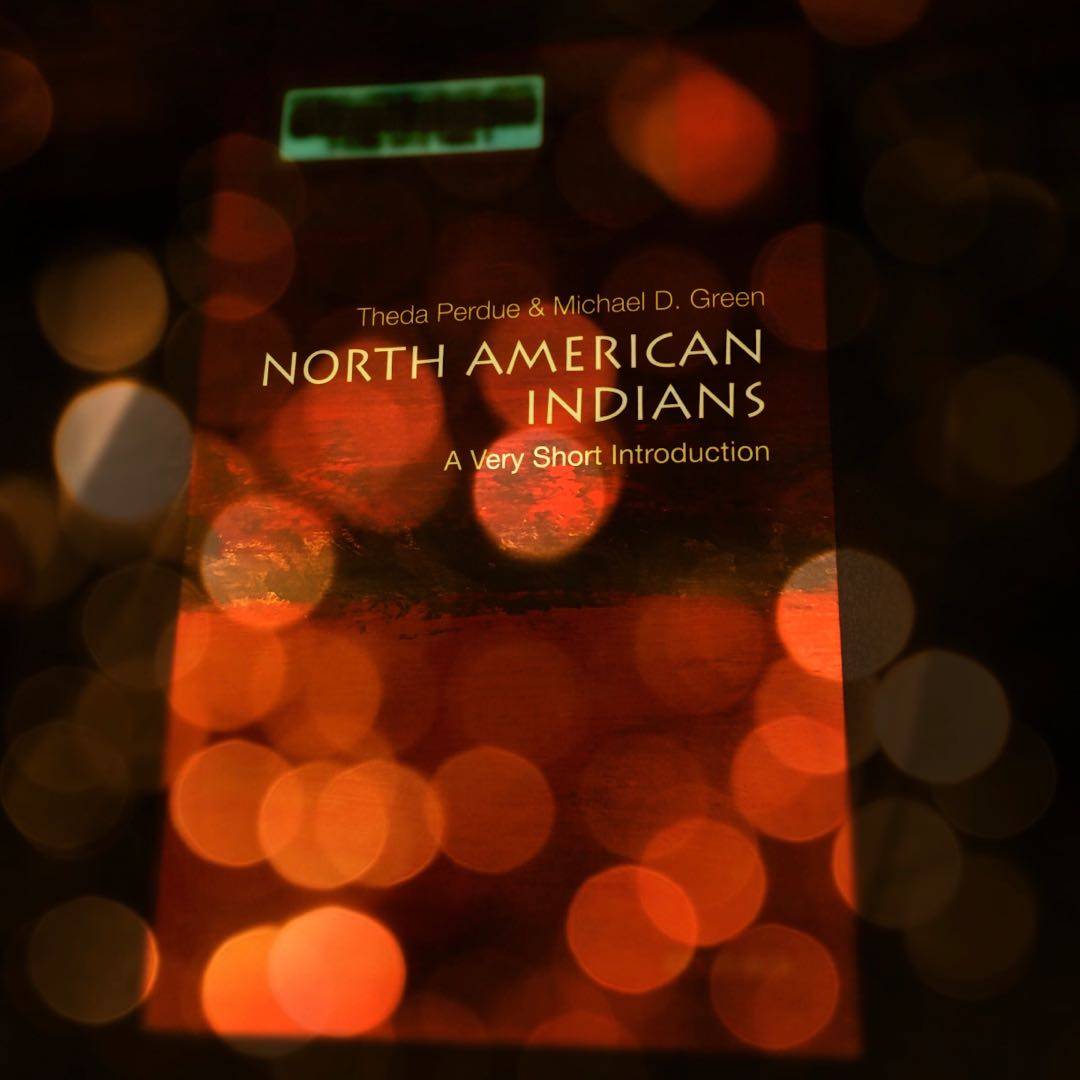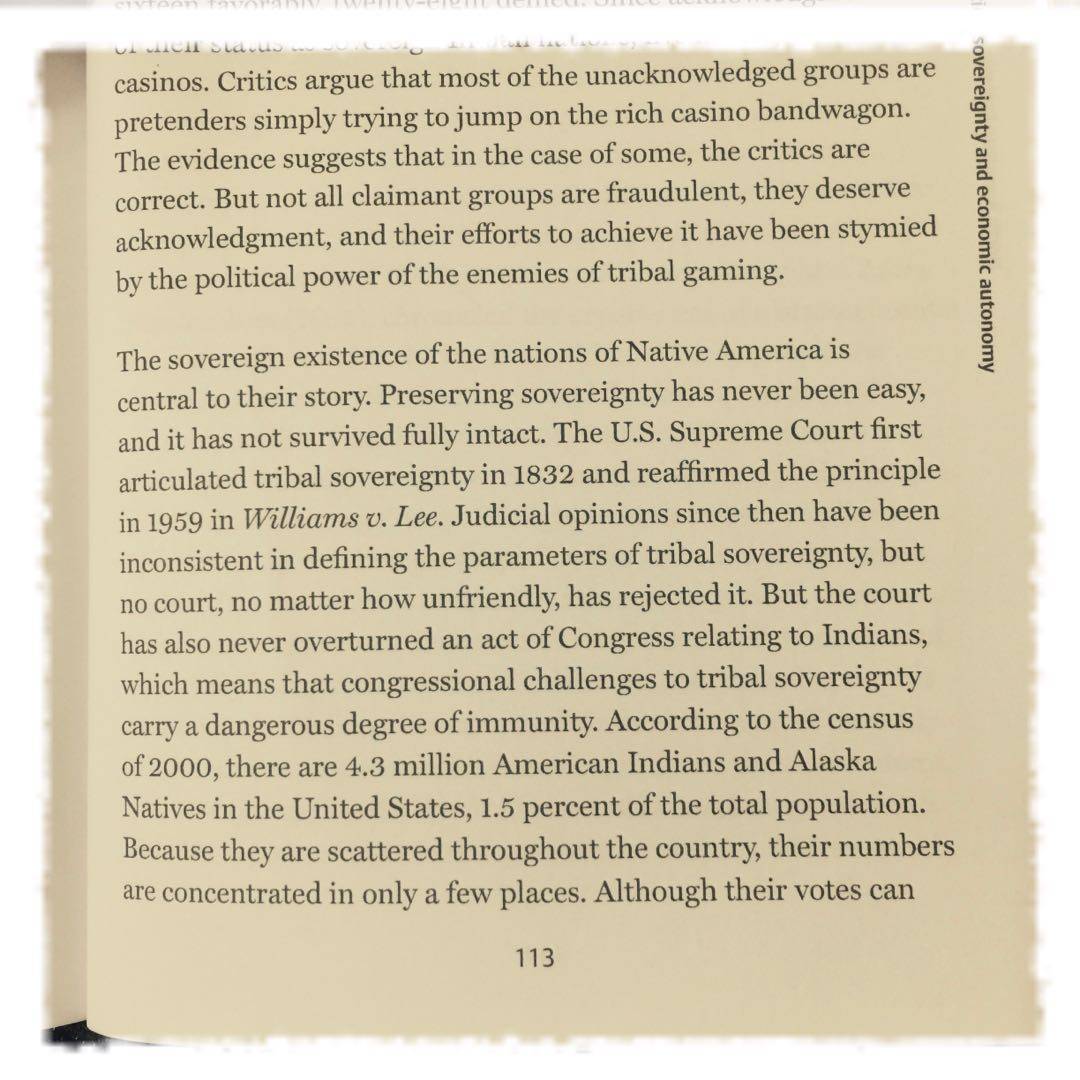
A pick because I learned a lot and want to know more, but the book has its limits - after the first two chapters, the focus is almost exclusively on Native Americans in the United States. More discussion of Canada would have been interesting.

A pick because I learned a lot and want to know more, but the book has its limits - after the first two chapters, the focus is almost exclusively on Native Americans in the United States. More discussion of Canada would have been interesting.

“The sovereign existence of the nations of Native America is central to their story. Preserving sovereignty has never been easy, and it has not survived fully intact. The U.S. Supreme Court first articulated tribal sovereignty in 1832 and reaffirmed the principle in 1959 in Williams v. Lee. Judicial opinions since then have been inconsistent in defining the parameters of tribal sovereignty, but no court, no matter how unfriendly, has rejected it.”

“Hunger followed many to their reservations where they depended on the government to distribute rations. But the rations were not dependable....Agents at the Sioux reservations in South Dakota reduced the rations in 1889, and the people were in danger of starvation. Hope existed, however, in the form of a prophecy. Wovoka, a Paiute holy man from Nevada, had dreamed a ceremony, the Ghost Dance...”

“To make things even worse, the epidemics reappeared continually.”